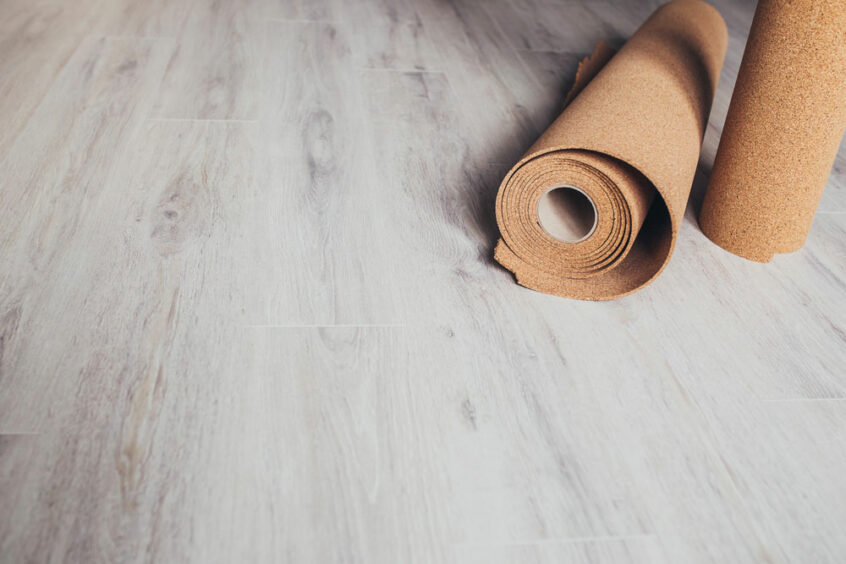When it’s time to change up your flooring, you will want to make sure that everything is done right. After all, failing to follow the proper steps could result in a project taking longer than anticipated — or worse, a project having to be completely redone.
Vinyl plank flooring is one of the easiest types of flooring to install, but one of the most common questions that comes up is whether or not the installation of vinyl plank flooring also requires the installation of underlayment. The answer to this question is not a simple yes or no answer. Instead, there are many factors to consider, which we will go over in this article.
What is Vinyl Plank Flooring?
Vinyl plank flooring is a popular choice for homeowner’s thanks to its high-end appearance and ability to mimic more expensive flooring materials. It is also known for its long-lasting durability and ease of upkeep. Unlike some other popular types of flooring such as laminate, vinyl plank flooring is generally designed to lay directly on top of the subfloor. A subfloor can generally be made out of wood, concrete, or can consist of the previous flooring. However, if your subfloor is warped or damaged, it may not be eligible to host the vinyl flooring directly.
What is Underlayment?
In flooring, underlayment refers to a thin covering that is placed between the floor and subfloor. It is generally made out of rubber, foam, or even felt. Its purpose is twofold: to protect both the flooring and the subfloor.
Do I Need Underlayment to Install Vinyl Plank Flooring?
Now that we have established the definitions of both vinyl plank flooring and underlayment, the question still remains — is it necessary to use underlayment with vinyl plank flooring? The short answer to this is “it depends”.
In general, underlayment is not a prerequisite for vinyl flooring. In most cases, you will be perfectly fine laying the vinyl plank flooring without the use of underlayment. However, as we mentioned above, if your subfloor is damaged or otherwise insufficient, you may want to consider the use of underlayment. Other common reasons why somebody may opt to install underlayment include:
1. Moisture Protection
In some cases, underlayment may provide a form of protection against moisture. In fact, an underlayment with moisture protection can offer important protection against water damage. This is an especially important consideration in rooms that are prone to dampness, such as kitchens, basements, or bathrooms.
2. Soundproofing
If you are installing the flooring in an apartment building or on the upper level of a house, you may want to make sure that you are taking all of the precautions in order to minimize the sound. If you are installing the flooring in a condo or apartment, it may even be required by the building code.
3. Insulation
If you live in an area that is prone to extreme temperatures, you may want to use underlayment as a form of insulation. If you use heated floors in your house, some underlayment may still be eligible for protective use.
4. Comfort
Just like the material that we sit on or lay down on can affect our comfort, the floor that we walk upon can too. Walking on a firm surface can take a toll on our bodies. Installing an underlayment can help reduce the impact.
5. Preventative Cost Saving
While the use of underlayment can save you money on your energy bills and can help preserve your flooring for years to go, it is actually not an expensive installation. For this reason, many homeowners who are looking to invest in their floor see it as being a worthwhile additional cost.
Your Flooring Experts in Vancouver
King of Floors is your go-to for all things underlayment and vinyl flooring in Surrey, as well as the Greater Vancouver Area. No matter what you’re looking for, our large flooring showroom has whatever you need for a successful renovation. Come pay us a visit today!
🔍 Explore Our Collections
Buy direct & save. 85,000 sqft MEGA WAREHOUSE. Over 300 products in stock!
Visit our showroom today for unbeatable prices and quality products!

